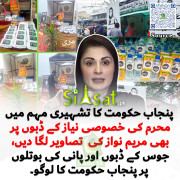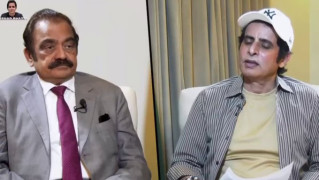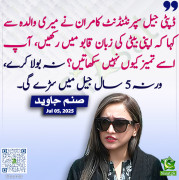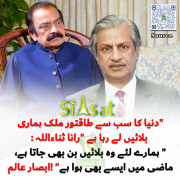hans
Banned
As of 01 March 2011 Saudi Arabia had avoided the wave of protests that had swept other Arab states. But activists had scheduled protests for March 11 and 20, 2011. And the Shiite minority in Sunni Saudi Arabia have shown solidarity with Shiite protesters in Bahrain. On Tuesday 01 March 2011 a group of over 70 Saudi intellectuals urged King Abdullah to enact reforms, calling on the king to oust corrupt politicians, curb government spending and provide better oversight of government business deals. They also called for giving more rights to the country's Shiite minority. On Sunday 27 February 2011 a group of over 100 leading Saudi academics and activists urged Abdullah to enact sweeping reforms, including relinquishing many powers under a constitutional monarchy. To preempt protests, the Saudi government announced a $36bn package of housing loans, unemployment benefits and pay rises.
The Basic Law establishes absolute monarchy as the political system. The goal of the House of Saud has been to make every Saudi citizen in some way dependent on the royal family in order to convince the citizenry that their own personal well-being is tied up with the existing political system. Riyadhs continued inability to provide the standard of living expected by Saudi citizens has encouraged opponents of the regime to push for a greater say in the way affairs in the Kingdom are conducted. These calls for greater political participation are exacerbated by the moves of Saudi Arabias neighbors, particularly Bahrain, to liberalize their political systems and encourage participation from their citizens.
Because the House of Saud is a weak regime, it is highly distrustful of its own citizens. Principal human rights issues include abuse of prisoners and incommunicado detention; prohibitions or severe restrictions on freedom of speech, press, peaceful assembly and association, and religion; denial of the right of citizens to change their government; systematic discrimination against women and ethnic and religious minorities; and suppression of workers' rights.
According to the family monarchy system enshrined in the Basic Law, only a few members of the ruling family have a voice in the choice of leaders, the composition of the government, or changes to the political system. The 2006 succession law created the Allegiance Commission, comprising 34 senior princes appointed by the king and responsible for selecting a king and crown prince upon the death or incapacitation of either. The king serves as prime minister and his crown prince serves as deputy prime minister. The king appoints all other ministers, who appoint subordinate officials with cabinet concurrence. The Consultative Council (Majlis as-Shura), a royally appointed 150-member body, advises the king.
Citizens do not have the right to change their government peacefully. The Basic Law states that the government is established on the principle of consultation (shura) and requires the king and crown prince to hold majlis meetings, open-door events where in theory any male citizen or foreigner may express an opinion or a grievance. A prince or other important national or local official can also hold a majlis. The Basic Law states that all individuals have the right to communicate with public authorities on any issue. The government interpreted this provision as a right to be exercised within traditional nonpublic means, not by the use of mass media.
Political parties are illegal. The Green Party continues to operate illegally. There was no media coverage of the party's activities. The Basic Law does not provide for freedom of association, and the government strictly limited this right in practice. The government prohibited the establishment of political parties or any group it considered as opposing or challenging the regime. All associations must be licensed by the MOI and comply with its regulations. Groups that hoped to change some element of the social or political order reported that their licensing requests went unanswered. The MOI reportedly used arbitrary means, such as requiring unreasonable types and quantities of information, to effectively deny associations licenses.
In the 2005 elections (the first since 1963), only male, nonmilitary citizens at least 21 years of age were eligible to vote for 592 seats on 178 municipal advisory councils, or half the total seats. There were no independent election observers. Unofficial estimates were that between 10 and 15 percent of eligible voters actually voted. The king completed the formation of the councils in 2005 by appointing 592 men to fill the other half of the council seats.
On 13 May 2009, a group of 77 human rights civil society activists sent a petition to the king condemning secret tribunals, seeking permission for human rights activists to monitor prisons, and demanding political and judicial reforms, including a constitutional monarchy and the limiting of the terms of appointed royal family members in government posts. The petition was copied to the Royal Diwan and 20 senior officials. The activists retained a Web site at www.humriht-civsocsa.org, where the petition and other documents relating to human rights and civil society issues were posted.
On 18 May 2009, the state news agency reported after a cabinet meeting that elections for half of the seats on the municipal advisory councils (the only elected government office) scheduled during the year would be postponed until October 2011 to provide more time to study "expanding the participation of citizens in running local affairs."
Laws and traditional/cultural practices requiring strict segregation of genders encompassing every aspect of life prevented women from participating in political life on the same basis as men. Beginning in 2005, the government allowed women to run for positions on the boards of chambers of commerce and industry, but none has won a place. In 2008 two women were elected to the board of the Jeddah Chamber of Commerce and Industry for four-year terms and three woman were appointed. During the year the number of female consultants on the Consultative Council increased from six to 10. There were no women on the High Court (women may not practice law) or on the Supreme Judicial Council. There was one woman in a cabinet-level position, as deputy minister for women's education.
There are no laws that prevent minorities from participating in political life on the same basis as other citizens, but the dominant societal norms marginalize the Shia population. The Consultative Council included only five Shia members. There were no religious minorities in the cabinet. There were some Shia judges.
The Basic Law establishes absolute monarchy as the political system. The goal of the House of Saud has been to make every Saudi citizen in some way dependent on the royal family in order to convince the citizenry that their own personal well-being is tied up with the existing political system. Riyadhs continued inability to provide the standard of living expected by Saudi citizens has encouraged opponents of the regime to push for a greater say in the way affairs in the Kingdom are conducted. These calls for greater political participation are exacerbated by the moves of Saudi Arabias neighbors, particularly Bahrain, to liberalize their political systems and encourage participation from their citizens.
Because the House of Saud is a weak regime, it is highly distrustful of its own citizens. Principal human rights issues include abuse of prisoners and incommunicado detention; prohibitions or severe restrictions on freedom of speech, press, peaceful assembly and association, and religion; denial of the right of citizens to change their government; systematic discrimination against women and ethnic and religious minorities; and suppression of workers' rights.
According to the family monarchy system enshrined in the Basic Law, only a few members of the ruling family have a voice in the choice of leaders, the composition of the government, or changes to the political system. The 2006 succession law created the Allegiance Commission, comprising 34 senior princes appointed by the king and responsible for selecting a king and crown prince upon the death or incapacitation of either. The king serves as prime minister and his crown prince serves as deputy prime minister. The king appoints all other ministers, who appoint subordinate officials with cabinet concurrence. The Consultative Council (Majlis as-Shura), a royally appointed 150-member body, advises the king.
Citizens do not have the right to change their government peacefully. The Basic Law states that the government is established on the principle of consultation (shura) and requires the king and crown prince to hold majlis meetings, open-door events where in theory any male citizen or foreigner may express an opinion or a grievance. A prince or other important national or local official can also hold a majlis. The Basic Law states that all individuals have the right to communicate with public authorities on any issue. The government interpreted this provision as a right to be exercised within traditional nonpublic means, not by the use of mass media.
Political parties are illegal. The Green Party continues to operate illegally. There was no media coverage of the party's activities. The Basic Law does not provide for freedom of association, and the government strictly limited this right in practice. The government prohibited the establishment of political parties or any group it considered as opposing or challenging the regime. All associations must be licensed by the MOI and comply with its regulations. Groups that hoped to change some element of the social or political order reported that their licensing requests went unanswered. The MOI reportedly used arbitrary means, such as requiring unreasonable types and quantities of information, to effectively deny associations licenses.
In the 2005 elections (the first since 1963), only male, nonmilitary citizens at least 21 years of age were eligible to vote for 592 seats on 178 municipal advisory councils, or half the total seats. There were no independent election observers. Unofficial estimates were that between 10 and 15 percent of eligible voters actually voted. The king completed the formation of the councils in 2005 by appointing 592 men to fill the other half of the council seats.
On 13 May 2009, a group of 77 human rights civil society activists sent a petition to the king condemning secret tribunals, seeking permission for human rights activists to monitor prisons, and demanding political and judicial reforms, including a constitutional monarchy and the limiting of the terms of appointed royal family members in government posts. The petition was copied to the Royal Diwan and 20 senior officials. The activists retained a Web site at www.humriht-civsocsa.org, where the petition and other documents relating to human rights and civil society issues were posted.
On 18 May 2009, the state news agency reported after a cabinet meeting that elections for half of the seats on the municipal advisory councils (the only elected government office) scheduled during the year would be postponed until October 2011 to provide more time to study "expanding the participation of citizens in running local affairs."
Laws and traditional/cultural practices requiring strict segregation of genders encompassing every aspect of life prevented women from participating in political life on the same basis as men. Beginning in 2005, the government allowed women to run for positions on the boards of chambers of commerce and industry, but none has won a place. In 2008 two women were elected to the board of the Jeddah Chamber of Commerce and Industry for four-year terms and three woman were appointed. During the year the number of female consultants on the Consultative Council increased from six to 10. There were no women on the High Court (women may not practice law) or on the Supreme Judicial Council. There was one woman in a cabinet-level position, as deputy minister for women's education.
There are no laws that prevent minorities from participating in political life on the same basis as other citizens, but the dominant societal norms marginalize the Shia population. The Consultative Council included only five Shia members. There were no religious minorities in the cabinet. There were some Shia judges.



































